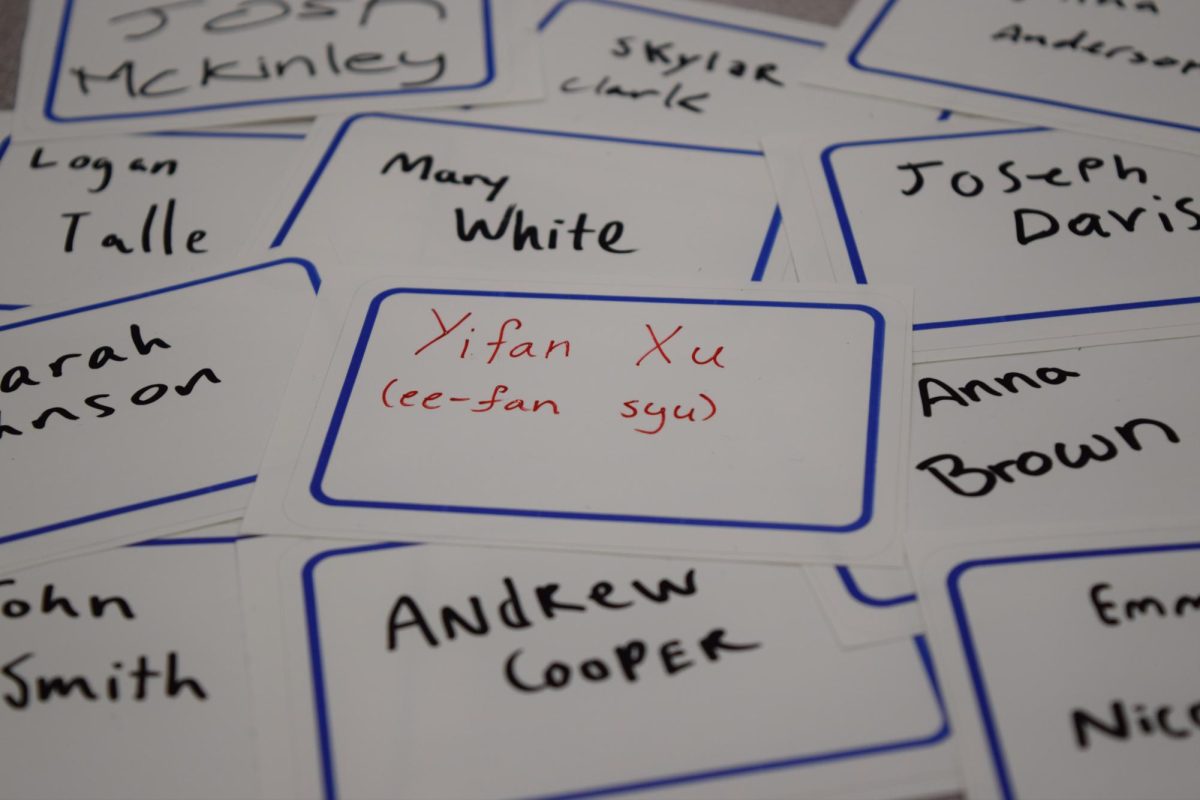What Administrators Learned in the Shadows
In an attempt to understand students, admin shadows students for a day
We asked students what they hoped administrators would understand about the Creek student experience. Here were some responses. (Carly Philpott)
December 18, 2021
What is the Shadow Program?
Spearheaded by Creek’s 26-person administrative team, the Creek Shadow Program sought to identify problems at Creek. Every Dean and Department Coordinator picked an experience they wanted to shadow, and came armed with a question to answer during their day.
“One administrator wanted to see a student who was new to the school,” Principal Ryan Silva said. “Another administrator wanted to see a student who is an English language learner. And then we had some who wanted to see advanced students, kids who are highly involved in after school athletics or in clubs, and some deliberately wanted to see students who were struggling.”
Students were recommended by counselors, club sponsors, and leaders of other groups around campus. Willing student participants were paired with an adult who spent one day following them to each of their classes, including lunch and off periods.
What did the administration think?
School psychologist, Dr. Lisa Geissler wanted to make connections between her career and the student she chose to shadow. Giessler shadowed a student who takes seven classes, mostly AP and honors.
“I wanted to follow a high achieving student,” Geissler said, “One of the students that were most worried about their mental health because of the stress there, [so I could] see what that stress looks like.”
Geissler says she gained valuable information from her experience and learned more about what it takes mentally to get through a day at Creek.
“I was exhausted, and it wasn’t just because they were honors classes,” Geissler said. “The way you guys have to go every 48 minutes, shift, every 48 minutes, shift. You’re writing an intense essay, you’re walking, you’re listening to an intense lecture on math, you’re walking. The pace and the transitions were exhausting.”
But there was also a positive side to the exhaustion. Geissler got to feel the passion for learning that drives students to take advanced classes.
“It was also exciting. It was like, ‘Oh, now we’re learning about this. Oh, now we’re learning about this.’ So there was a good energy, it wasn’t just all negative and exhaustion,” Geissler said. “So that was interesting.”
Part of Creek’s culture is excellence in academics, and the various learning communities within the school. One of these communities is comprised of students who take multiple advanced courses.
“We see that with our AP and honor students, they have been in the same classes together for many years. It was a really lovely community,” Geissler said. “I could see how these kids cared about each other, even if they weren’t best friends outside of school. There was strong support and connection that was really nice to see.”
When adults shadow students, they experience the approaches of different teachers and learn from them. One of Geissler’s favorite classes was with math teacher Rob Matuschek.
“Everyone’s talking, having side conversations, and he’s up there teaching. And then he’ll ask a question of some student that’s way, way away from him and the student will answer correctly,” Geissler said. “So the students engage, obviously, in learning and Matuschek is aware of who’s in there, and he’s engaging the whole classroom. But it seems like if you didn’t really sit and watch, you would walk in and think ‘what is going on here?’ It’s beautiful. I have no idea what he’s created or how. But that was so much fun to watch.”
English department coordinator Kim Gilbert approached her shadow day with the question: how do we improve our graduation numbers? She chose to shadow a student who struggles academically.
“I thought that the experience might provide insight into the questions that teachers try to answer when we meet and discuss the needs of our students,” Gilbert said.
In recent years, Creek student’s have called into question the necessity of grades, and why points are such a deciding factor of academic success. Gilbert commented that grades do not always match effort level.
“I tried to go into the experience without expectations. I wondered what I would see regarding the student I was shadowing and was surprised when they turned out to be a very engaged student who didn’t match what I’d seen in Powerschool.”
Gilbert could see that her student engaged with the learning, challenging the notion that students with lower grades aren’t smart or don’t care about school. She also recognized another part of the inner workings of Creek that needs improvement – the credit recovery system, which is available to students who failed a class and need to redo the coursework.
“The way Creek handles credit recovery for students does make for a very long day,” Gilbert said.
One of the main takeaways from the day was that going to class every period without enough break time can be very exhausting.
“I do think that students need off periods and time at lunch to relax and meet with friends,” Gilbert said. “I didn’t have any off periods except for lunch, and I attended academic support then, which made the day even longer.”
As the Principal, Ryan Silva doesn’t have as many opportunities as teachers do to form close bonds with students, and getting to know the student he shadowed was important to him. Principal Silva shadowed a student who was similar to him in high school – one with mostly CP classes and three off periods.
“We would have conversations during passing period, and we had conversations at lunch, and I just found out that he has a story, and he has a plan,” Silva said. “You see this picture of him on paper, but there’s more to it.”
Creek students know too well how hard it is to get to class on time. Silva was no exception, and he received a tardy during sixth period, his first class after lunch.
“I was really hungry and I was late to class,” Silva said. “Where he wanted to go eat is a little bit further away, and it was a shorter period because it was advisory day. So we had to book it there, and then we got our food and it was great, but then we had to come back fast.”
Silva also took the typical teenage attire very seriously, and decided to ditch his dress shoes for something a little bit more comfortable.
“I wanted to wear sweats because I thought it’d be really comfortable,” Silva said. “I did have a hoodie, and it was cold so that kind of worked out.”
One thing that Silva realized throughout the day was how hard it was to do seemingly insignificant things like fill his water bottle or go to the bathroom. He quickly noticed that he couldn’t just leave class and come back whenever he wanted.
“I started thinking about things that are just automatic for me, like when I need to refill my water bottle, I just go in my office and get it,” Silva said. “I started to have to think strategically like, ‘Okay, I’m going to need some water so when am I going to get it?’ And then the other piece I was thinking about too is ‘When can I go to the bathroom? Do I need to go now? Because there’s not a bathroom close by.’”
As part of his job, Silva occasionally attends classes to observe how teachers structure their lessons. While he was more focused on the student experience during his shadow day, he also noticed some things about his classes that were appealing.
“I think that they did a good job of including different ways of seeing the material,” Silva said. “I got to watch a video, there was a little five minute thing here, 10 minute thing there. I felt like they did a nice job of breaking it up and giving it to us differently.”
What do students think?
Timothy Libby, the Fine Arts Coordinator, accompanied senior Aria Zhou for her shadow experience. For Zhou, she not only got to show Libby her day, but also get a look into his.
“It’s really cool seeing how Mr. Libby knows all these different students and all of these teachers,” Zhou said. “He’ll just get stopped in the hallways and teachers will pick up conversations with him, so it’s kind of been fun to look into his life too.”
As a member of DECA, one of the business programs at Creek, Zhou takes marketing class, which is more specialized than a core class. For Libby – a band teacher at Creek – this was a great opportunity to experience a day with a student who has a very different focus.
“For marketing, we had a math test,” Zhou said. “So he got to look at some accounting and financial statements.”
Senior Connor Fulton participated as a student who started taking AP classes his senior year. Fulton’s experience was different than he expected, but not in a bad way.
“I thought I was going to have to act different than what I am and try to be the perfect student,” Fulton said. “But really I was being myself and he was just there.”
Fulton was shadowed by science coordinator Stephen Smith, who teaches AP Biology and Science Research at Creek. He thought that throughout the day, Smith got a good look at how draining his days can be.
“On the third lecture in a row in one day, you can kind of space out,” Fulton said. “I think he understood if he was doing that every single day, five days a week, that he would get sick of it.”
Fulton described his overall shadow experience as very positive. For him, the value of the day was when he had conversations with Smith about his typical days, and he could see that Smith cared about what he was saying.
“I could tell he was actually paying attention and thinking of what he could do better,” Fulton said. “Maybe [the administration] will realize that we need to change it up a bit and do different things so that we can keep paying attention. I think this is a good step that they are taking.”
What’s next?
Now that the administration has gathered a pool of information based on their different experiences, they need to compare their thoughts and how to move forward.
“There’s two meetings after we shadow and we say ‘Alright, what did we see? What did we learn? What are the takeaways?’ So I don’t think we necessarily have a goal of like, ‘this is something that we’ve already identified as being something that we want to accomplish,’” Silva said.
The administration went into the experience with ideas around what type of students they wanted to see, and a question they wanted an answer too, but they didn’t necessarily go into the day with a list of problems they were trying to solve.
“It’s more of ‘What are the takeaways?’ Silva said. “And that conversation will be all the adults, but then the last meeting will involve the students so that they can give their perspective and they can tell us things.”
This is only the first year that Creek has tried to do a shadow program, and Silva is looking at ways to possibly expand the program to include teachers in coming years.
“There are some teachers who are interested, and I could see there being a possibility of having teachers, shadow students,” Silva said. “Of course, the coordinators are teachers, but they’re also part administrators. To have a full time teacher get that experience of going from content to content probably wouldn’t be a bad idea. There’s definitely a double digit amount of people who are interested, so I don’t think it would be that difficult to see if that’s something we could do next year.”

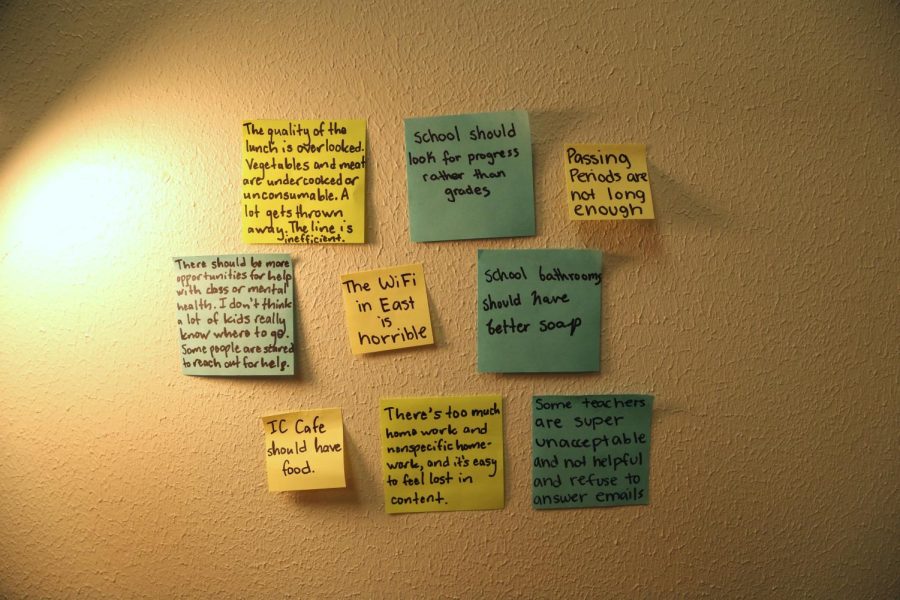
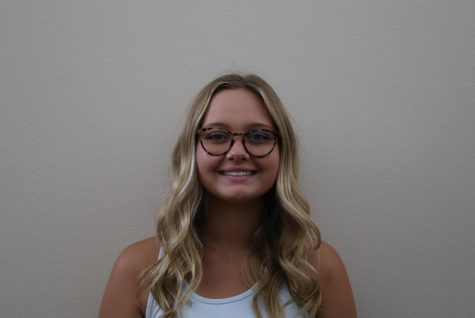












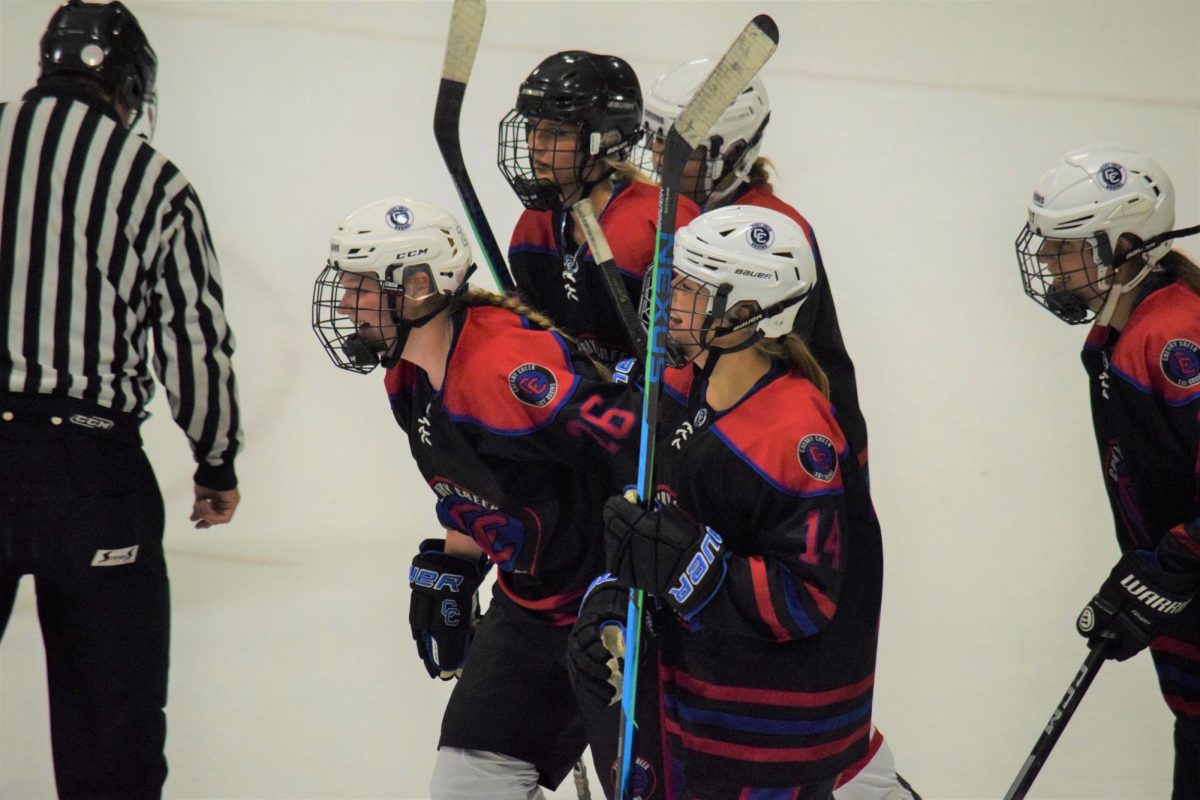

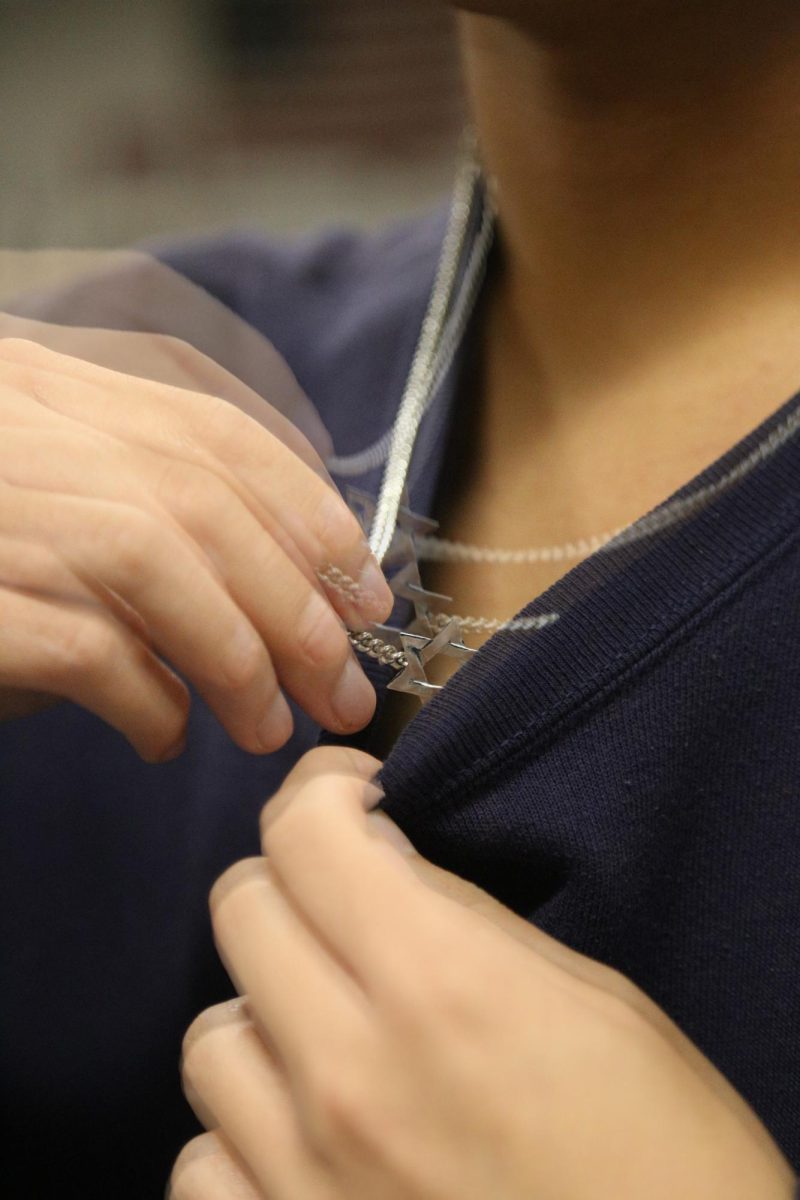
![In a recent surge of antisemitism nationally, many have pointed towards social media and pop culture as a source of hate. “Many far-right people have gone on [X] and started just blasting all their beliefs," Sophomore Scott Weiner said.](https://unionstreetjournal.com/wp-content/uploads/2023/10/antisemitism-popculture-2-1200x675.jpg)
